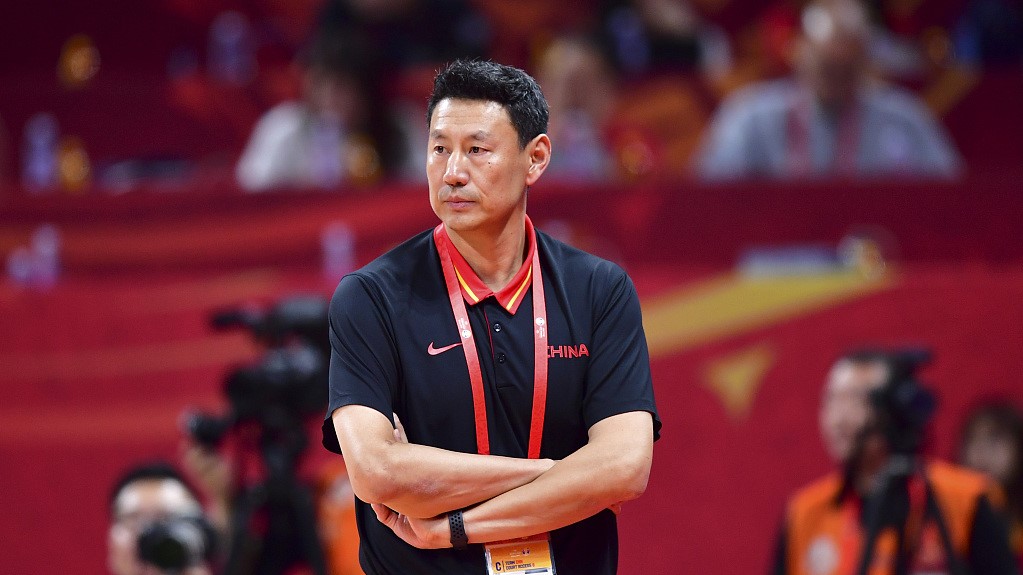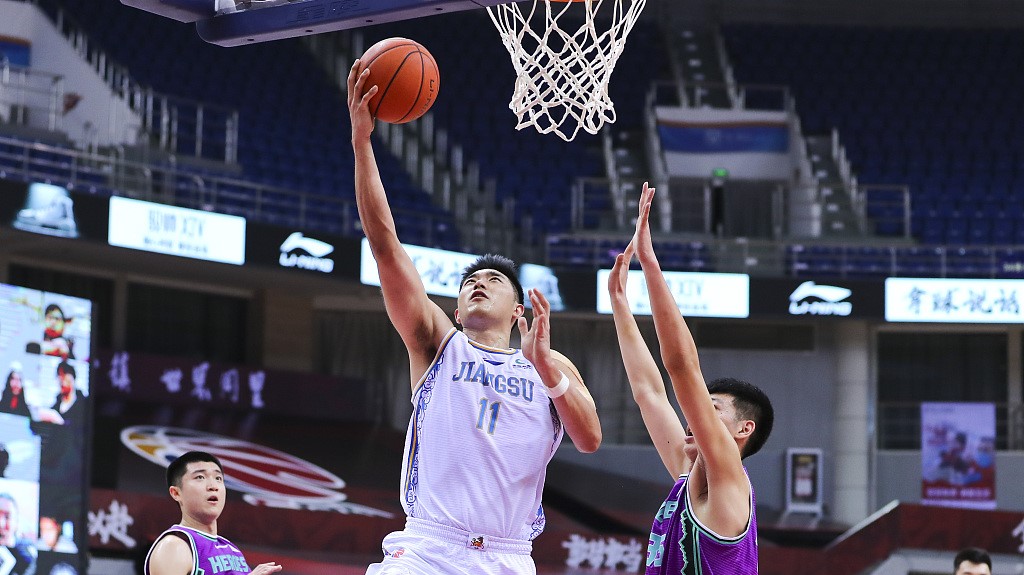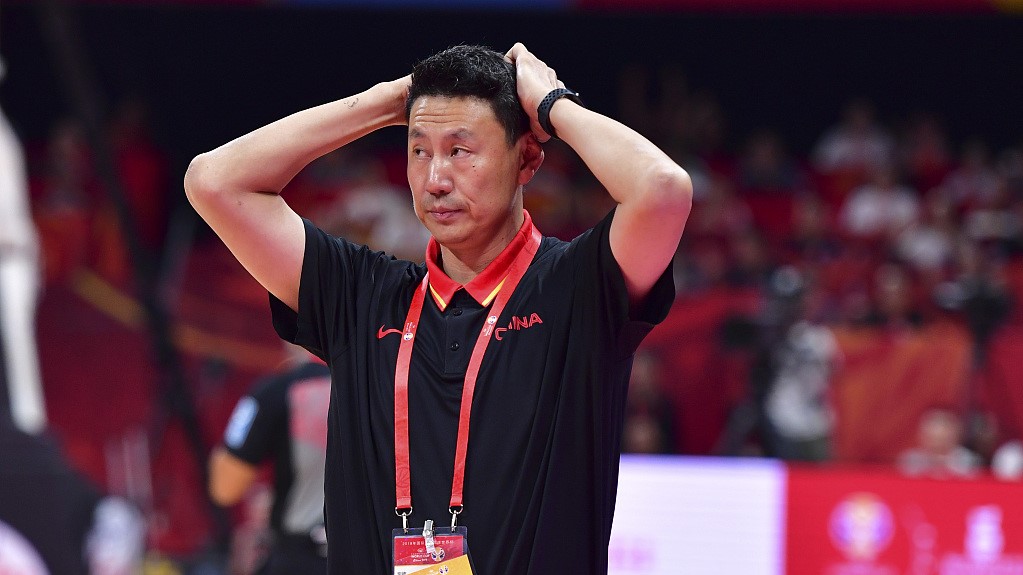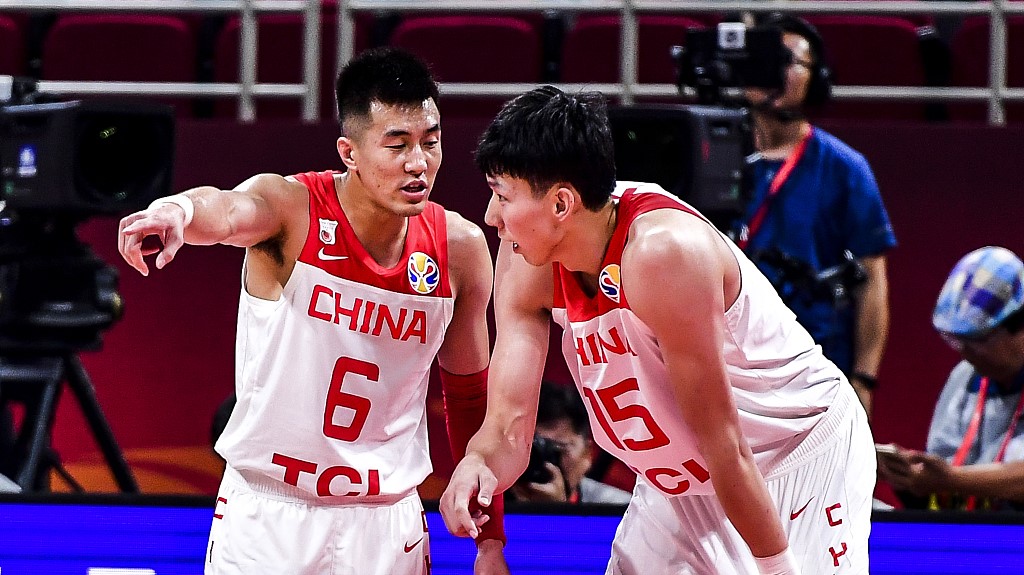
Li Nan, head coach of the China, in the group game against Venezuela at the FIBA Basketball World Cup in Beijing, September 4, 2019. /VCG
Li Nan, head coach of the China, in the group game against Venezuela at the FIBA Basketball World Cup in Beijing, September 4, 2019. /VCG
Li Nan, former head coach of the Chinese men's national basketball team, is about to lead the Jiangsu Dragons in the coming new CBA season. In an interview with Xinhua News Agency on Tuesday, Li talked about his experience of coaching the national team, his expectations on the new CBA career and views over youth development.
Li was appointed as team consultant of Jiangsu in May. Three months later, he became the new head coach of the team. Having finished the last season with a disappointing 17-29 record, Jiangsu are not only young – with an average age only 22 years old – but also little-known. Therefore, Li's job can be very challenging.
"It does give me a feeling of starting over coming to Jiangsu," said Li. "I was first player and then coach during my 23-, 24-year-long domestic career, but I did not have much experience of coaching top-level games or competitions close to top level. That's why I think it's time for me to start over at a club to collect more experience."

Wu Guanxi #11 of the Jiangsu Dragons shoots a layup in the game against the Shandong Heroes in Qingdao, east China's Shandong Province, July 20, 2020. /VCG
Wu Guanxi #11 of the Jiangsu Dragons shoots a layup in the game against the Shandong Heroes in Qingdao, east China's Shandong Province, July 20, 2020. /VCG
"Our team has a lot of young men and only one or two 'older ones.' That means some of the young guys will appear in the starting lineup. Some of them will stay longer than others on the court. Maybe some of the boys are not ready yet, but that's where we are right now."
Young blood never lacks passion or fighting spirit, but these are just uncut diamonds who still need time to refine their skills.
"We need rules both in practice and in the game. I want them to act on their own as long as they follow my forms. I don't want to make excessive demand on everything they do.”
"Today's kids lack practice. … I want to increase their practice time to make up for it. Second, I want help them learn how to fear no hardships and how not to give up in front of setbacks. These can all be done via daily training and management."

Li Nan, head coach of the China, looks on in the group game against Poland at the FIBA Basketball World Cup in Beijing, September 2, 2019. /VCG
Li Nan, head coach of the China, looks on in the group game against Poland at the FIBA Basketball World Cup in Beijing, September 2, 2019. /VCG
It will take longer for people to forget China's failure at the FIBA Basketball World Cup at home in 2019. As the team's head coach, Li was questioned the most over his choice of rotation and timeouts.
"I think every coach has his own style and habit for calling timeout and deciding rotation. For example, I did not make that substitution at that moment but I couldn't say 'I should have done that' after the game. … You can't do everything as others expect. They question you because they pay more attention to the result."
Having coached the national team for over two years, Li generalized China's problems into two: lack of tough-battle experience and inferior individual ability.

Guo Ailun #6 and Zhou Qi of China talk to each other in the group game against Poland at the FIBA Basketball World Cup in Beijing, September 2, 2019. /VCG
Guo Ailun #6 and Zhou Qi of China talk to each other in the group game against Poland at the FIBA Basketball World Cup in Beijing, September 2, 2019. /VCG
"We played too little with European teams or stronger American teams, like only very few games a year. It's not the same as playing warm-up games at home. We need to go overseas and attend more competitions like the NBA Summer League or the contests in Europe. Ideally, you train for three or four weeks and then play three or four games. Then you start training again and do the same repeatedly. But our team cannot do this because of many difficulties."
"When we say a player 'carries his own system,' like LeBron James, it means wherever he goes, the team plays in his way. Our national team does not have guys like that. We have no Sonny Weems or Jeremy Lin. We always say we play as a team, but how? What is our style? Our players' ability defines team's style. For China, I think passing is still our problem. So is penetrating. We used to call guys who can slash with absolute speed 'sharp blade.' Now we don't have enough of those players."
Then what can Chinese players do to solve this problem? Li believes the key lies in making players ask more of themselves. "Chinese players, especially the young ones, are too easily satisfied and lack sense of competition. Without sense of competition, they can't find motivation. They are too comfortable in the clubs. They fall short of the best but are better than the worst. That can't be good for players. That's why I kept telling my guys: you need to want to get better before we can help you. If you don't, no one can help you."